As I said in my article “Where In The World Is Tech Man?” I have been doing a little research on going to Mars. Now what I’m ask in this article is “Should we?” and “Are we ready to take this leap?” With technology and the human race both growing so fast it might be time to get off this rock and settle somewhere else. But first, let’s look at the technology which is already out there and what is to come.
It all started so long ago with our fascination with this little red dot in the sky.
Mars has been documented for at least 4,000 years and the first person to postulate that Mars was a planet was Nicolaus Copernicus. This theory was published back in 1543, which tells you we have been trying to figure this planet out for quite a while (universetoday.com). With the advancements in technology we have found out much more about this planet in the last 10 years, even more in the last couple years. This has made mankind even more determined to get to this planet and explore. Not only explore it but inhabit it. Who doesn’t want to have a vacation home on Mars? Now there is a real possibility of being able to travel to Mars in our life time; just like Arnold Schwarzenegger in Total Recall as a “vacation.” That is such a cool movie … not the new one, the Schwarzenegger one. So what kind of tech have we sent to date and what will we need to actually make this happen?
Technology now: Mostly things that we have already sent up.
First one I want to mention is the Exploring Rovers we have sent up to our neighbor in the sky.
- Spirit Rover, Opportunity Rover, Phoenix Mars Lander, Mars Science Laboratory Curiosity.
These are the guys we have sent up in the last 11 years to find out more about our potential new home. You might not have known this but we have even sent Satellites up to check the weather and scan the planet. Of course, most of these Satellites that the world has sent have met their doom. We did send a Mars Climate Orbiter back in 1999 but it was destroyed by atmospheric stresses & friction.
But don’t worry, there are quite a few which did survive and are still active. Here is the list of orbiting devices.
As of October 2015, there are 13 known artificial satellites in Mars orbit (5 active):
- Mars-2, launched 1971 May 19, USSR, inactive
- Mars-3, launched 1971 May 28, USSR, inactive
- Mariner 9, launched 1971 May 30, USA, inactive
- Mars-5, launched 1973 July 25, USSR, inactive
- Viking 1, launched 1975 August 20, USA, inactive
- Viking 2, launched 1975 September 9, USA, inactive
- Phobos-2, launched 1988 July 12, USSR, inactive
- Mars Global Surveyor, launched 1996 November 7, USA, inactive
- 2001 Mars Odyssey, launched 2001 April 7, USA, active
- Mars Express, launched 2003 June 2, European Space Agency (launched by Russia), active
- Mars Reconnaissance Orbiter, launched 2005 August 12, USA, active
- Mars Orbiter Mission (MOM) or Mangalyaan, launched 2013 November 5, India, active
- Mars Atmosphere and Volatile Evolution (MAVEN), launched 2013 November 18, USA, active
One small clarification: Mark Adler (American software engineer who has been heavily involved in space exploration) has pointed out that, since we do not actively track the inactive orbiters, they may not actually be in orbit. They are generally expected to be in orbit longer however.
As you can see we are working hard to learn everything we can to figure out if we can live on Mars. On earth we even have people training to live there. This is called Simulation Outpost Alpha by Mars One and with this we are learning what technology we can use from Earth and what we will need to create in order to survive there.
Simulation Outpost Alpha by Mars One
Even NASA has a team training in Hawaii, which I do not feel would be the most unfomfortable place to train…
So, right now we have a lot of the technology in place which could help us reach and survive on Mars, but we still have a lot of little things to work out before this can happen. We need to figure out how to grow food up there, how to create oxygen, how to to get there in good health since gravity is important to humans.
Technology Future: What we will need.
Travel: Ion propulsion – This is important since gas is not cheap. We need to figure out a cheaper way we can get there and still be able to get back.
Oxygen: Oxygen generation – we need to figure out how to create our own oxygen. Great thing is we already do this on the Space station.
Farm: Farming on Mars – We will need to grow our own food up there. Again the International Space Station has already grown the first lettuce leaf in space. I’m quite impressed with this one since I can’t even grow lettuce in my garden at home.
These are just some of the advancements we are working on to be able to eventually move off this rock. This brings me back to my original question.
Should we go?
In my opinion I feel we should. Since this planet will only be able sustain so much life for so long we need to find a way to keep the human race around. The only way to do this is to move out into space.
Are we ready to take this leap?
I feel we are not ready yet but I can see us getting therein my lifetime. There are many things we need to perfect before we make that human leap. However, considering the rapid advancements in technology, we might be there sooner than we think.
What do you think?
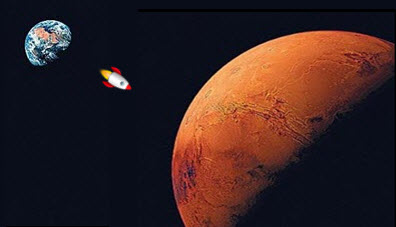
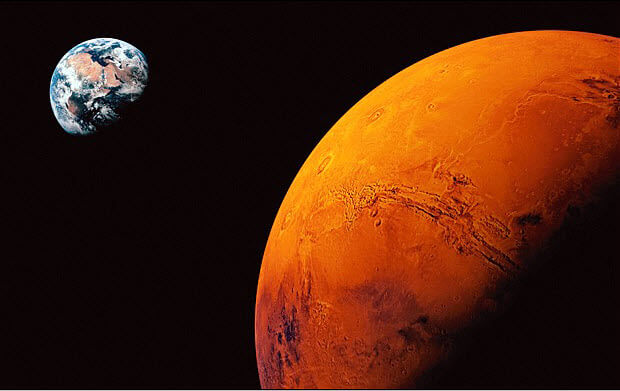
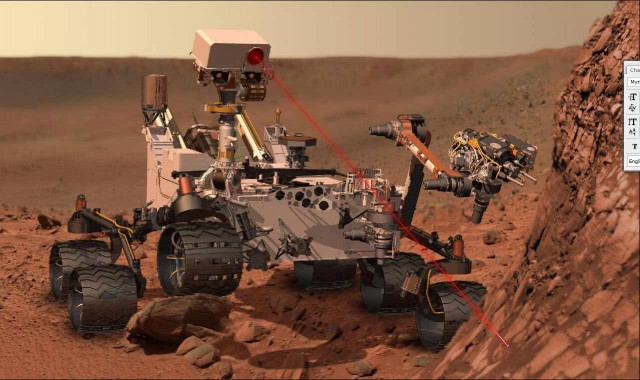
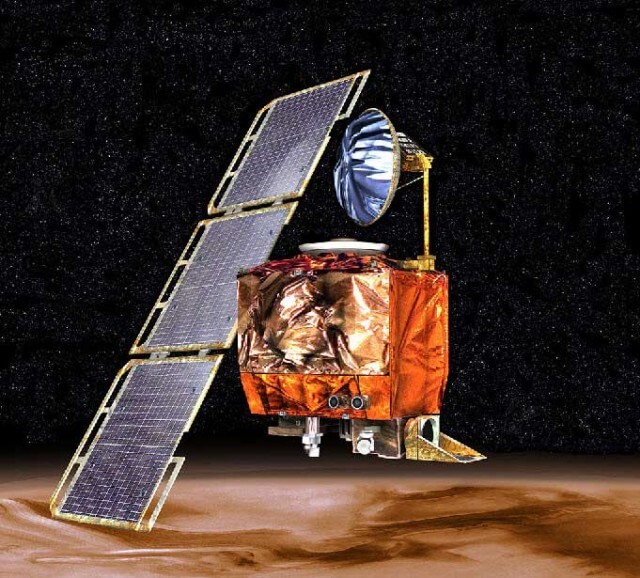
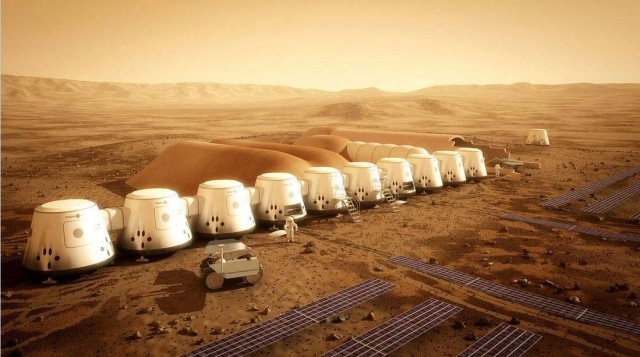
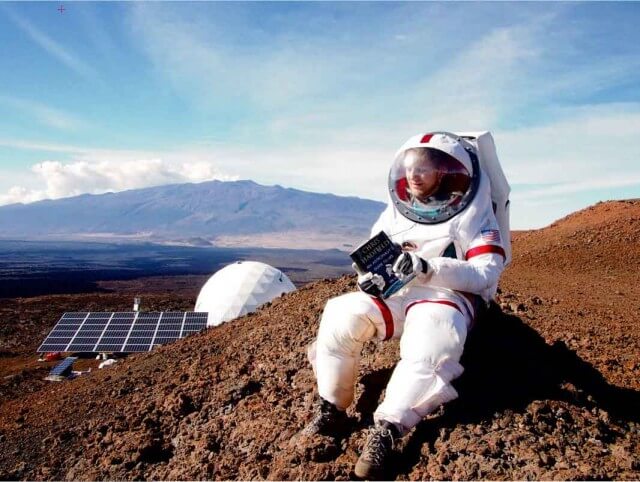

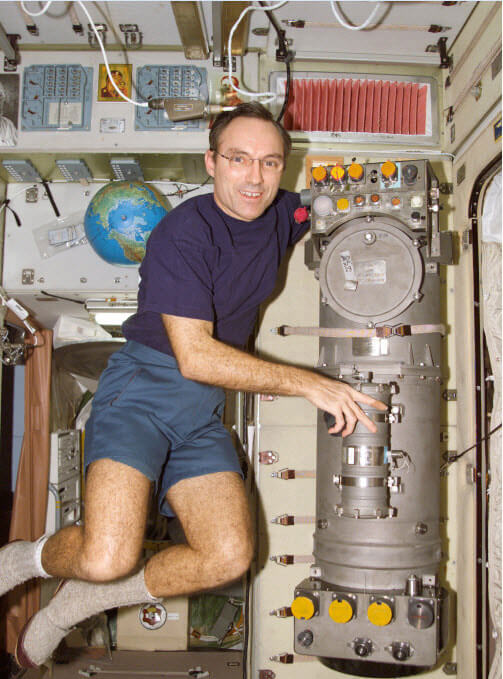

Before we make that leap for mankind then the human race needs to learn quit bickering and fighting hear on Earth.
Should we go or better yet is man meant to go? The way I see it, it is their so why not. I wonder if Nasa needs volunteers?
Yes Daniel, I do agree the bickering needs to stop on Earth or Mars will be just another place to fight with everyone. Now for NASA needing volunteers I’m in if they do.
OMG< I LOVE this article. Such a sci-fi nerd here and enjoy reading up on all of the latest NASA and physicist thoughts and findings. I recently watched a great video by physicist Michio Kaku that talks about how we are only a type 0 civilization and how if we can survive ourselves we can make it to a type 1 civilization where we will start going to other planets. He talks about how it is the most dangerous transition for us, it is the time where we have the choice to move forward or destroy ourselves . Great article!
Yep felt they same way when i was writing it. Thanks Jonny
Link to the video I spoke of https://www.youtube.com/watch?v=7NPC47qMJVg
This is one of my favorite Physicists and this video is great. Thanks for sharing Jonny if anyone one else has not seen this video go check it out.
Interesting points, makes me think of the book/movie “Martian”. Growing food in space and oxygen are great starting problems, but what about atmospheric pressure, gamma radiation flying through space? It’s going to take months to fly to mars, how would one sustain a crew of humans for that long on a tiny space probe? Once we’re on mars do we live in pods? Does anyone make it back (many current plans leave space explorer on mars for life). And what about the question of terraforming mars?
There’s certainly a lot of curiosity about this red planet but many questions left unanswered about the probability of survival on the planet. Great conversation starter, Jason!
Great points Big Booty and yes a one way trip is tough for many. I love that you mentioned terraforming because I was thinking about mentioning that in this article but I felt that it deserved its own article. Would be great if we could terraform Mars. :)Thanks for sharing with us
I have always loved the idea of being in space on other planets. Growing up I loved Star Trek, Alien, 2001: Space Odyssey, and of course Star Wars. Then there were all the space shuttle missions. In 1986, I was in 8th grade walking to Science class when were told the Space Shuttle Challenger had exploded. That was all we watched and how horrible that was for all of those who died and their families. It is a price I am sure they were made aware of but still ventured on. So, I love this article because it means NASA is still trying to learn about a universe out there that is beyond even what we can fathom. The world used to believe the world was flat and had no one tried to prove that wrong we would have been stuck and never growing or reaching out to change and improve….and in short Whoo-Hoo Great article! 😉
Thanks Tohnya! I grew up watching those same things and It is the price these explorers sometime have to pay to advance or race to the stars. I too am glad NASA is still trying to learn more about our universe because life would not be exciting if we all just stayed home and never tried something new.